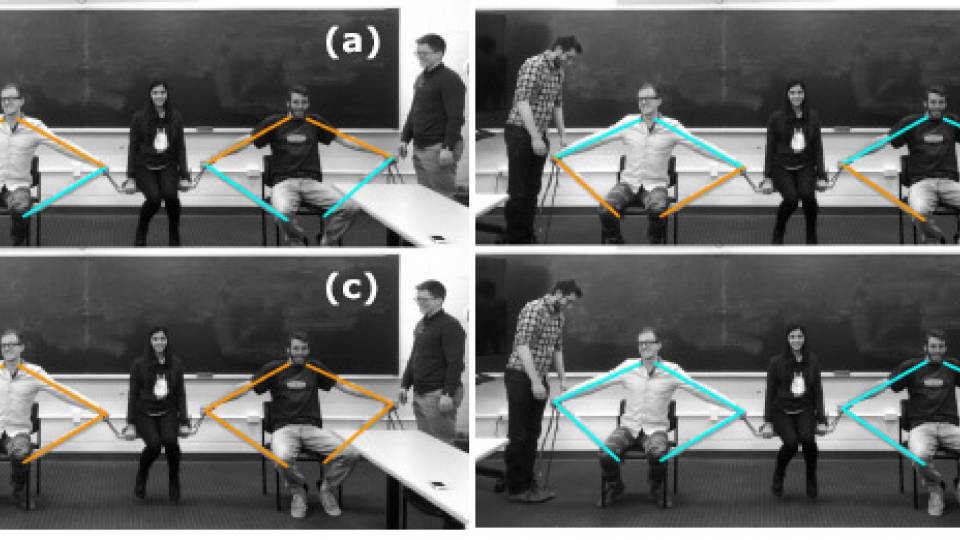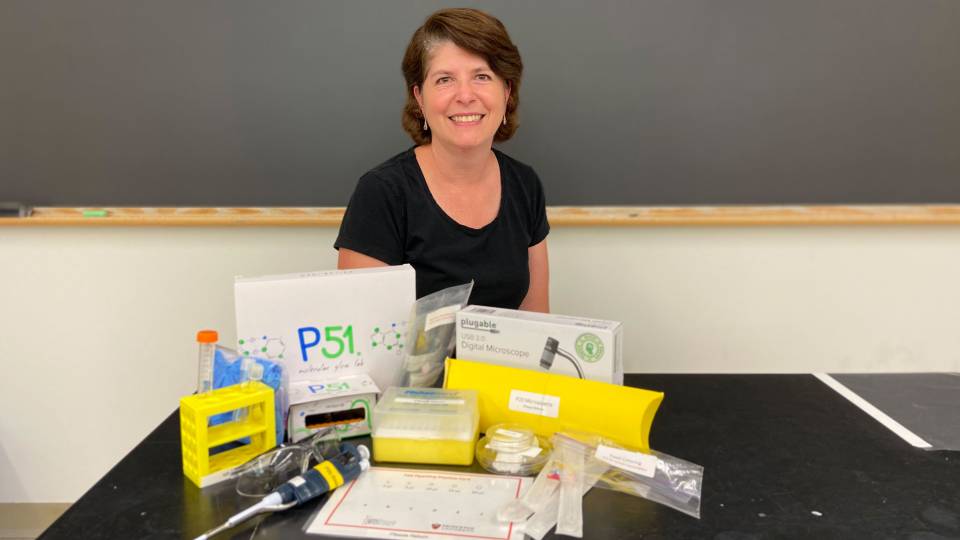Historian Jeremy Adelman is spending this fall teaching "A History of the World since 1300" to more than 50 students at Princeton University — and 80,000 students across the globe.
Adelman is among seven professors debuting classes on the educational website Coursera as the University explores online technology to enhance learning at Princeton and extend its educational resources beyond campus.
"We can learn a lot from experiments in online learning, not just about the potential and limits of the online medium itself, but also about the practice of teaching more generally," Provost Christopher Eisgruber said following the launch of Princeton's first massive open online course (MOOC) this summer.
The University announced in April it would offer noncredit courses on Coursera, which now features content from more than 30 U.S. and international universities. Founded in 2011 by two Stanford University professors, Coursera focuses on interactive learning and concept retention through the use of video lectures embedded with quizzes, collaborative forums and online discussion groups. Users from around the globe may access Coursera for free.
Adelman, the director of the Council for International Teaching and Research, said he is using Coursera to rethink teaching models. Princeton students go online to watch his lectures and interact with external Coursera users. With the class time freed by students being able to access recorded lectures on their own time, Adelman organizes global dialogues between guest speakers and Princeton students. He also oversees the weekly discussion groups, known as preceptorials, for Princeton students held on campus.
"Flipping the classroom really allows more time for active learning. It's less time anchored in a lecture hall and more opportunities for face time with me and interactions with people from around the world," said Adelman, who also is the Walter Samuel Carpenter III Professor in Spanish Civilization and Culture.
"My big objective is to learn about global history within the world. Coursera really opens up the walls of the classroom beyond Princeton," he continued. "I hope there will be tremendous value added for students, but I will watch it very closely and will rethink the approach if there is any sense of loss."
Sociology professor Mitchell Duneier said he was enlivened teaching the first Princeton Coursera class, "Introduction to Sociology," this summer.
"My two principal questions at the start were: Was it possible to provide quality education to students all over the world via the Internet and, just as importantly, could Coursera help augment the learning experience for students at Princeton?" said Duneier, the Maurice P. During Professor of Sociology. "The answer to both was a resounding 'yes.'"
Even with 40,000 students from 113 countries, Duneier said his class was thoroughly interactive due to the online forums and live seminar-style discussions via Google Hangout, the group video chat offered through the social-networking service Google+.
"Within three weeks I received more feedback on my sociological ideas than I had in a career of teaching, which significantly influenced each of my subsequent lectures and seminars," Duneier wrote recently in the Chronicle of Higher Education.
Dipendra K.C., who followed Duneier's class from Nepal, said he was surprised at how much he learned, while emphasizing that participants who are proactive will get the most from online studies.
"The Coursera class broadened my understanding of sociology and gave me the opportunity to encounter several kinds of opinions," he said. "Princeton is a dream for millions of students around the globe. The University's participation in Coursera really shows it is interested in expanding knowledge even for students who do not attend Princeton."
Junior Estela Diaz, who has taken other sociology courses at Princeton, sat in on Duneier's summer offering for her personal interest. She said it was her first online learning experience.
"When taking a class at Princeton, you might be able to hear a few perspectives on any given topic. The Coursera class provided the opportunity to read and hear ideas drawn from many experiences from around the world," she said.
Duneier said his Coursera experience altered the approach to the introductory sociology class he's co-teaching at Princeton this fall with sociology professor Paul Starr, the Stuart Professor of Communications and Public Affairs.
"As a result of the summer venture, we asked whether it is possible that the 50-minute presentation designed for a physical classroom is necessarily the best way to teach all of our material," Duneier said. "We're making use of a few recorded lectures, broken up into units that relate to specific concepts."
Like the Coursera videos, each of the recorded segments includes an interactive assessment. Duneier said this is based on the idea that simple self-assessments foster improved learning over passive viewing. Duneier and Starr are experimenting with these video lectures during times when class attendance may be lower, such as the Wednesday before Thanksgiving.
Robert Sedgewick, the William O. Baker *39 Professor in Computer Science, also is harnessing Coursera to enrich the Princeton learning experience. His new course "Analytic Combinatorics" will be taught online and on campus starting in February.
"Princeton students will directly interact in a small class with the professor who developed the material, as usual, but will also be able to benefit from the social experience of interacting through the Web with scholars all over the world," he said.
Sedgewick is now co-teaching a two-part Coursera class on algorithms with Kevin Wayne, the Philip Y. Goldman '86 Senior Lecturer in Computer Science. The online medium has engendered educational innovations, he said.
"For example, rather than instructors grading hundreds of exercises with a paper and pen, students take online assessments that provide instant feedback and leave more time for the teaching staff and students to interact," Sedgewick said.
Princeton Coursera classes, which do not result in credits or certificates, also include: "Statistics One," taught by Senior Lecturer in Psychology Andrew Conway; "Networks: Friends, Money and Bytes," taught by Professor of Electrical Engineering Mung Chiang; and "Computer Architecture," taught by Assistant Professor of Electrical Engineering David Wentzlaff.
Deputy Dean of the College Clayton Marsh said the University has much to learn as it pursues online approaches to education.
"Each of our classes on Coursera is different and will present new and different opportunities — and new and different challenges," Marsh said. "As each online offering gets under way, we are quickly discovering which types of subjects and online formats are going to be most effective and mostly closely aligned with our educational mission at Princeton."
To that end, Dean of the Faculty David Dobkin has appointed a faculty committee chaired by Gideon Rosen, the Stuart Professor of Philosophy, to examine online learning policies, whether related to Coursera or other platforms.
Jeff Himpele, associate director of the McGraw Center for Teaching and Learning, said it will be essential to pause for reflection. The McGraw Center, working under the direction of the Office of the Dean of the College and in collaboration with the Office of Information Technology's Academic Services division, coordinates and supports the development of Princeton content for Coursera.
"It will be important to examine what we achieved on Coursera, but also what we achieved on campus," Himpele said. "We've been contacted by other faculty who do not have classes on Coursera, but have been inspired by the possibilities of online learning for use just in their Princeton classes. It's been fascinating to see how Coursera has catalyzed a conversation about teaching methods across campus."

